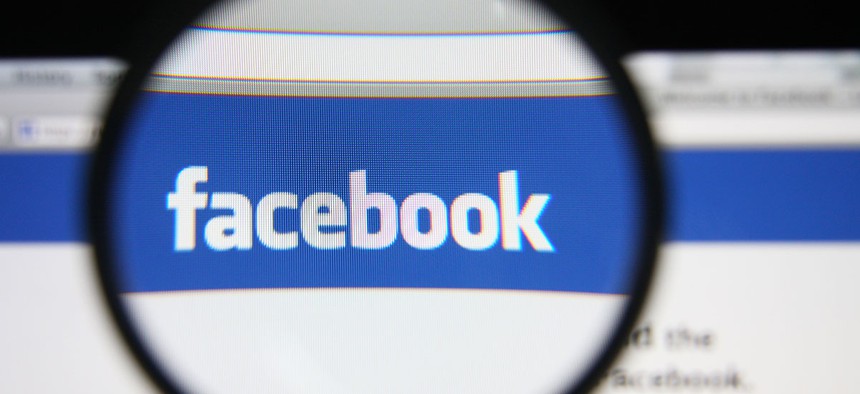Facebook Is Reportedly Working on Hardware to Take on the Amazon Echo and Google Home

Gil C/Shutterstock.com
“Hey Facebook, how many likes did my witty post about Trump get today?”
“Hey Facebook, how many likes did my witty post about Trump get today?”
Facebook is working on a video-chat device, similar to the Amazon Echo Show, Bloomberg reported today. The device would be the first piece of hardware developed by Facebook’s Building 8, its research and development arm. The division has been run by Regina Dugan, the former head of the Pentagon’s DARPA research facility, and Google’s advanced research team, since last year.
The new device would have a large touchscreen, between 13 and 15 inches, and wide-angle cameras that Bloomberg says could “help farflung people feel like they’re in the same room” on a conference call.
Bloomberg also reported that Facebook is working on a second device, a sub-$100 smart speaker more like the Amazon Echo, Google Home, and Apple HomePod devices, that would be activated and controlled by Facebook’s own assistant. That would presumably be Facebook M, the human-supported assistant Facebook has been slowly rolling out since August 2015.
Facebook declined to comment on its hardware plans.
Facebook’s attempt at a telepresence device would presumably pit them against the likes of Cisco, Polycom, and Microsoft—whose massive Surface Hub device is now likely a billion-dollar business. Facebook has ambitions of cutting into the workplace market, having launched Workplace, its answer to corporate-messaging software like Slack and HipChat, late last year. A device that would allow employees to connect their work lives with their work meetings on one system could well be a selling point for whatever Facebook has in the pipeline.
These potential devices wouldn’t be Facebook’s first forays into hardware. The company released the Oculus Rift, one of the first consumer-level virtual-reality headsets, in 2016. The company has not revealed how many units it has sold, but analysts expect around 500,000. Facebook also once partnered with the Taiwanese manufacturer HTC (who it now competes against in the VR headset market) to release a Facebook-powered phone in 2013. It was not a success.
Whether consumers will want a smart speaker from the company whose business involves knowing their entire history of social media posts and selling ads against them, or companies will want to invest in telepresence software from a company primarily known to distract employees at work, is unclear. Just make sure it doesn’t have any blue rings on it.





